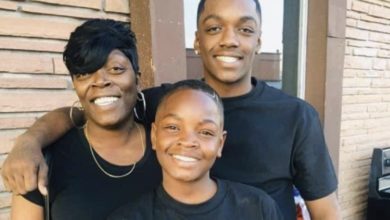On Aug. 16, Florida attorney general Charlie Crist announced that the 1951 murders of civil rights activists Harry T. and Harriette Moore were committed by four Ku Klux Klan members. He also announced that there will be no trial since the four murderers are all deceased.
State and federal officials had known about the four suspects for decades. The murderers were Earl J. Brooklyn,
|
Tillman H. Bevlin, Joseph N. Cox and Edward L. Spivey. Though Crist said that others may have also been involved, the Florida attorney general’s office is not pursuing any other suspects and the details of each suspect’s role will not be revealed.
The Moore’s home was bombed on Christmas day in 1951, immediately killing Harry T. Moore. Harriette Moore died of injuries nine days later. One of their daughters, who was also in the house, survived the blast. Another daughter was on her way home for the holiday when the bombing happened.
At the time, several suspects emerged during an FBI investigation. None were pursued due to supposedly “insufficient evidence.” No one has ever been prosecuted in the case. In 1980, Spivey, a former marine and Ku Klux Klansman told NAACP officials that he and other Klansmen had conspired with law enforcement officials to plan and carry out the assassination of the Moores.
In an interesting use of words, Crist said strong circumstantial evidence pointed to ultra-violent factions within the KKK “as being responsible for this horrible act.” Apparently, the attorney general was able to determine that this particular “faction” was more violent than the KKK itself. This is twisted logic at best. The KKK was organized specifically to terrorize, harass and murder African American activists and help violently repress the African American community as a whole.
The KKK is a racist terrorist organization that has long worked hand-in-hand with the police and U.S. government to help enforce unequal treatment for the Black community. The KKK also terrorizes immigrants, the Latino community, LGBT people and others.
The Moores: important civil rights leaders
The announcement of the “solving” of these murders provides an opportunity to acknowledge the work of the Moores and people like them. Described as “quiet leaders” in the Miami Herald, the Moores were courageous fighters who directed their energy at opposing the deeply entrenched racism of the South at the time.
In a 1948 letter to Florida state senator Wayne Morse, Moore wrote: “Those of us who have spent all of our lives in the South know that there is no such thing as ‘separate but equal.’”
In 1934, Harry Moore started the Brevard County NAACP in central Florida. He steadily built it into an activist organization. In 1937, in conjunction with the all-black Florida State Teacher’s Association, and backed by the NAACP attorney Thurgood Marshall in New York, Moore filed the first lawsuit in the deep South to equalize Black and white teachers’ salaries. Although the case was eventually lost, it led to a dozen other federal lawsuits in Florida that eventually won equal pay for Black teachers.
When Harry and Harriette were fired from their teaching positions and blacklisted, Harry took on a full time organizing position with the NAACP. He built 63 chapters throughout the state. Under Moore’s leadership, over 116,000 African American voters in Florida became registered—31 percent of those eligible and 51 percent higher than any other southern state.
The Moores targeted the brutal aspects of African American oppression at the time: lynchings, police brutality, and the entire apartheid political system in the South. From the early 1940s until his death, Harry T. Moore launched investigations into every Florida lynching.
In July 1949, four African American men were accused of raping a white woman. It was nationally known as the Groveland rape case. A racist riot ensued after the accusation, in which racist vigilantes shot into and burned down African American homes.
Harry Moore uncovered evidence that the Groveland defendants had been brutally beaten by the notoriously racist sheriff Willis McCall of Lake County. When two of the convictions were overturned by the U.S. Supreme Court in 1951, Sheriff McCall shot the two defendants, killing one, while transporting them to a pre-trial hearing. Moore called for McCall’s immediate indictment for murder.
Harry T. and Harriette Moore were true anti-terrorist fighters. To pay real homage to the Moores, full reparations for the crimes of the government, the banks, and the corporations who promote and profit from KKK terrorism against the African American community are necessary.







